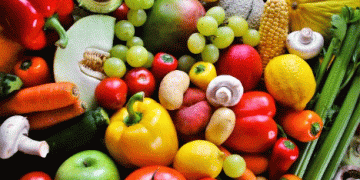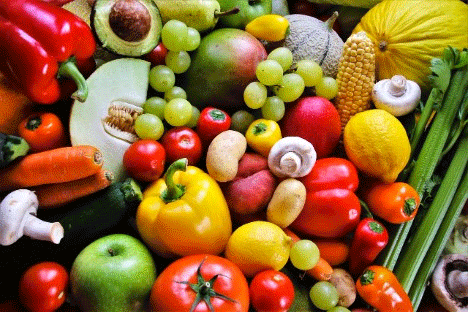The World Fruit and Vegetable Day, held on October 18, serves as a global reminder of the importance of integrating more fruits and vegetables into daily diets. Under the theme “With Fruits and Vegetables, We Cultivate a Sustainable and Healthy Future,” this annual initiative aims to raise awareness about both the health benefits of these food groups and the role they play in achieving a more sustainable food system. Supported by the Global Alliance for the Promotion of the Consumption of Fruits and Vegetables 5 a Day (AIAM5), the event features participation from 37 partners across 30 countries, demonstrating its wide-reaching impact.
The Growing Importance of Fruits and Vegetables in Global Health
The World Health Organization (WHO) recommends a daily intake of at least 400 grams of fruits and vegetables per person. However, despite the known health benefits, many populations fall short of these targets. According to the latest global statistics, only 18-20% of people worldwide meet these dietary recommendations. This insufficient consumption contributes to rising cases of chronic diseases such as heart disease, diabetes, and certain cancers.
To combat this, the World Fruit and Vegetable Day focuses on educating the public about how fruits and vegetables can reduce these risks and promote longer, healthier lives. In fact, scientific studies have shown that regular consumption of a variety of fruits and vegetables can lower the risk of premature death by up to 31%.
Sustainability and the Role of Agriculture
Beyond personal health, fruits and vegetables also play a critical role in creating sustainable agricultural systems. As climate change continues to affect global food production, there is a pressing need to adopt agricultural practices that minimize environmental impacts. Crop diversification, reduced pesticide usage, and sustainable water management are essential strategies for improving vegetable farming’s resilience to challenges like drought, which has been a growing concern in regions like Bashkortostan.
Agricultural engineers, farmers, and agronomists are exploring various innovative techniques, such as precision agriculture and advanced biotechnology, to boost yields while preserving the environment. For example, vertical farming and controlled environment agriculture (CEA) have shown potential in urban settings where space and resources are limited. These technologies not only increase production efficiency but also significantly reduce water and energy consumption—key components of sustainability.
Global Partnerships for a Healthier Future
The AIAM5 alliance, with its 37 partners across 30 countries, plays a pivotal role in uniting global efforts. Their initiatives aim to bring together farmers, scientists, agricultural engineers, and public health officials to promote healthier eating habits and more sustainable agricultural practices. These collaborations help drive innovation in farming techniques that support the growth of fruits and vegetables while conserving vital resources.
Through public awareness campaigns, workshops, and demonstrations, World Fruit and Vegetable Day showcases how the agriculture industry can contribute to both human and environmental health. Farmers and agronomists, as key players in this movement, are urged to adopt sustainable practices that align with the UN’s Sustainable Development Goals (SDGs), particularly Goal 2 (Zero Hunger) and Goal 12 (Responsible Consumption and Production).
World Fruit and Vegetable Day highlights the dual importance of fruits and vegetables for both human health and agricultural sustainability. By promoting their consumption and fostering global partnerships, the initiative advocates for a future where healthy diets and eco-friendly farming practices go hand in hand. As agriculture continues to face environmental challenges, the commitment of farmers, agronomists, and scientists to innovation and sustainability will be crucial in shaping a resilient, healthy, and sustainable future.































